John Janaro's Blog, page 208
June 30, 2017
Suffering... WHY?
 One way or another, suffering is inescapable. And the question that suffering grinds out from our guts, and that sooner or later reaches our (outer or inner) throats, is "WHY?"
One way or another, suffering is inescapable. And the question that suffering grinds out from our guts, and that sooner or later reaches our (outer or inner) throats, is "WHY?" The agony of this "why? question" is at the heart of human suffering.
It is a mystery, of course, a great mystery. Perhaps it has something to do with the fact that we who are mere creatures (a creature is a nothing-in-itself) are being transfigured, divinized, given participation in God's infinite life. The endurance of suffering-in-trust is an inescapable element of this destiny as it is realized in a world of sin and death. At its heart is this radical, transformative love that we are called to accept and respond to, that breaks us open so that we can go beyond ourselves and realize the "likeness-to-God" for which we have been created.
We must endure ("he who loses himself...") with trust ("for my sake," says Jesus).
Still, it makes us gasp. It feels like leaping into an abyss. It's unimaginable. How can we possibly "do" this losing of ourselves, this passage through suffering and, ultimately, dying?
What makes it possible for us is the fact that God Himself has already "done it" in history, in a moment that embraces all moments and all human beings and all suffering. "My God, my God, why have you forsaken me?" Jesus cries out, taking all the suffering of all of us sinners as His own. But in the same breath, He says, "Father into your hands I commend my spirit."
The "distance" of "forsakenness" is filled by absolute, self-emptying love. Thus all suffering is transformed into His suffering which is an expression of His love for the Father in the Spirit, and the revelation and communication of the glory of the God who is infinite Gift.
We can grow, therefore, through suffering in union with Him and His suffering.
It isn't even so much that we (by some autonomous act) "offer" or "unite" our sufferings to His. They already are His sufferings, and through them He draws us into union with Himself. We begin by giving ourselves over, surrendering, trusting in Him, begging Him to accomplish the plan of His love in us. The Lord, in accordance with His wisdom, will generate and sustain within us the very freedom by which we cooperate with Him. He will empower us to say the profound "yes" by which our freedom grows into a communion with Him and a sharing in His freedom and love.
This is indeed a great mystery. We should not be surprised that we feel so poor in front of it, that it can seem so strange, so difficult, so psychologically dislocating sometimes. God sees the depths of human hearts, beyond anything we can understand, even with regard to our own.
Let us never be discouraged. The mystery of His mercy is always at work. Trust in Him!
Published on June 30, 2017 07:58
June 26, 2017
Indifference and Brutality: Two Sides of a Coin
Published on June 26, 2017 17:00
June 25, 2017
Who Was "The Catholic Bach"?
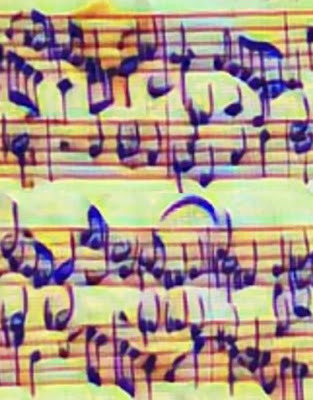 My regular column ("Great Conversion Stories") in MAGNIFICAT this month features the story of a famous composer named Bach.
My regular column ("Great Conversion Stories") in MAGNIFICAT this month features the story of a famous composer named Bach.No, not that Bach (the immortal Johann Sebastian), but his youngest son, Johann Christian Bach, sometimes called "the London Bach" for his many years in England. Obviously, since he made it into my column, there is good reason to call him "the Catholic Bach."
I had to edit the published version of the story, but I thought it would be worthwhile to present the longer version here, where I could include a few more biographical details. I also want to add a few words about (and give a sample of) the music.
I am rather fond of the music of "the Catholic Bach," and if it sounds somewhat "conventional" for its time, that may be because he was one of the architects of the "conventions" as well as one of the innovators who paved the way for the "great composers" who came after him.
I want to take the opportunity here to share once again my passion for music, which follows a variety of paths ("from Bach to rock" would be a concise but rather corny and inadequate way of putting it). Beauty is a transcendental, with a scope as wide as being itself, and in the craftsmanship of sound analogously predicated of a vast array of "artifacts" in various ways, on various levels... but that's a blog post for another day.
Here below is the extended, deluxe version of the conversion story of Johann Christian Bach:
This is a story about faith, conversion, and 18th century music in Europe. But let’s make clear right from the start that this is not some secret story (or speculation) about the man most people associate with the name “Bach,” i.e. Johann Sebastian Bach (1685-1750), who is ranked among the greatest composers of all time. Certainly all of Christianity has been greatly enriched by Johann Sebastian’s prolific output of sacred music, in which his musical genius and his own deep commitment to Christ (as a Lutheran) are both expressed. It must remain a mystery, however, why Protestantism’s most outstanding sacred artist (he has been called “the Fifth Evangelist”) dedicated the final three years of his life and all the energies of his declining health to composing the epic, sublime Mass in B Minor.
The Great Bach integrated faith and art in such a way that enabled him to discover the "ecumenism of beauty." He also passed on his devotion to Christ and some measure of his musical genius to his large family. Four of Bach’s sons became musicians and composers in their own right, and their works are still performed today. His youngest son, Johann Christian Bach (1735-1782), was the most prolific and important of the four. Johann Christian Bach branched out beyond his father’s accomplishments to stand out as a significant 18th century personage in his own right. He moved from the churches and courts of Saxony to the theaters and concert halls of Italy, France, and above all England, where he lived the final 20 years of his life. He also took another step “beyond” his father and the rest of the Bach family by converting to the fullness of Catholic faith.
The young Johann Christian learned keyboard performance and composition from his father and older brothers, first in Leipzig and then in Berlin at the Prussian court. But in 1754, as Prussia became preoccupied with the buildup to the “Seven Years War,” he made an important decision to travel to Italy to continue his education and begin his career. This would allow him to blend his German mastery of harmony and technique with the more popular Italian melodic style. More importantly, in Italy he met the man who would become both his musical and his spiritual “father”: Padre Giovanni Battista Martini, one of the eminent musical scholars of the time and a Franciscan priest. Johann Christian spent several years under the tutelage of Padre Martini in Bolognia and Milan, and devoted this period of his life to the composition of sacred music. These early works, including two Masses, a Requiem, and hymns, are particularly rich in musical inspiration.
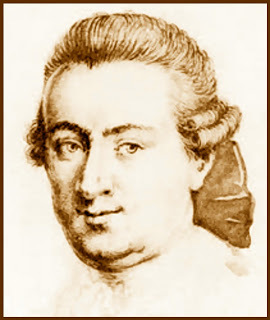 Johann Christian entered into full communion with the Catholic Church around 1760. Most music historians consider his conversion to be merely a matter of professional convenience, and it is true that young Bach’s benefactors had secured a position for him in the Milan cathedral. But this does not rule out the likelihood that it was sincere. Bach encountered something new in Padre Martini: a man whose faith was integrated into the whole of the artistic life. Bach saw that Christian life could be “incarnate” in a music profession that was in a lively and expansive phase of artistic development, and that was entering the broad sphere of secular entertainment. With the encouragement of Padre Martini, Johann Christian’s path followed that development as it shaped the “popular music" of the time: Opera. His early operas were a sensation in Milan and Naples, and he soon became the maestro of the 18th century’s greatest multimedia entertainment business. Both Italian Opera and concert music brought Johann Christian Bach to England where he worked under the patronage of King George III and Queen Charlotte.
Johann Christian entered into full communion with the Catholic Church around 1760. Most music historians consider his conversion to be merely a matter of professional convenience, and it is true that young Bach’s benefactors had secured a position for him in the Milan cathedral. But this does not rule out the likelihood that it was sincere. Bach encountered something new in Padre Martini: a man whose faith was integrated into the whole of the artistic life. Bach saw that Christian life could be “incarnate” in a music profession that was in a lively and expansive phase of artistic development, and that was entering the broad sphere of secular entertainment. With the encouragement of Padre Martini, Johann Christian’s path followed that development as it shaped the “popular music" of the time: Opera. His early operas were a sensation in Milan and Naples, and he soon became the maestro of the 18th century’s greatest multimedia entertainment business. Both Italian Opera and concert music brought Johann Christian Bach to England where he worked under the patronage of King George III and Queen Charlotte.From then until his death after a brief illness in 1782, Johann Christian remained in contact with his mentor Padre Martino and, though not a candidate for sainthood, he kept his Catholic faith. His overall behavior was honorable, and the financial problems toward the end of his life were not the result of dissolute living but the consequence of failed business ventures and embezzlement by his financial manager. He was not only appreciated for his outstanding music, but was also loved by all who knew him. He was known for his cheerfulness and his willingness to mentor the younger generation of musicians, the most famous of whom—of course—was Mozart. Bach met Mozart when the latter came to London with his family as an eight year old “child prodigy” on an extensive European tour. They became great friends, and Bach—who didn’t have an envious bone in his body—gave greatly of himself and his musical expertise to help Mozart develop and mature his amazing gifts.
Today Johann Christian Bach has a familiar place in the canon of classical composers. One of the reasons why he may seem “underrated” is that history places him between two incomparable giants: His great father and first teacher, Johann Sebastian Bach, and his greatest “student,” Wolfgang Amadeus Mozart. In many ways J. C. Bach is a kind of bridge between the two very different composers, just as he is a bridge from northern to southern European music styles, and a bridge from Lutheran Christianity to the Catholic Church. His own life and music have their value too, as a witness to the unity-in-diversity that shines through in all that is beautiful.
Watch and listen to a brief clip of J. C. Bach's music below. This is the third movement from his G minor symphony. It shows one of his forays into a more dramatic sound from a small ensemble in a musical form that was just beginning to take shape.
Published on June 25, 2017 20:46
June 23, 2017
How Can We Love Others the Way God Loves Them?
 People in this world need to experience the love of God.
People in this world need to experience the love of God. This is not just an analytical statement of religious discourse. This matters to me, personally; as a Christian this concern has been entrusted to me as a responsibility (see e.g. Matthew 28:19-20). So what can I do?
If I really want people to know God--not just as a theory but as a Presence who changes their lives, who loves them-- then I must love them.
The God who is Love, and who became man, wants to use my humanity to show Himself to others first and above all by loving them, unconditionally, as they are, for who they are. He wants me to love them the way He loves them...which is to say, the way He loves me.
This is entirely different from the pretense to a kind of "tolerance" that in fact evades the other person and distances itself from the person. This is not a "relativism" that uses a superficial affirmation of the other as a pretext for remaining closed within myself, thus escaping the challenge of loving and being loved.
This is not any kind of activism that tries to impose a utopian ideology on people or that exhausts itself in a self-affirming display.
Loving means loving. It means giving what I have received. It means not dreaming about how wonderful love is, but actually giving myself, being a gift in this moment, to the person or persons who have been entrusted to me on the path of daily life.
And if I'm "busy" with things--if I am speaking or writing or communicating on the internet--I must ask myself, "Why am I here? Am I here to give myself, or to build up and enrich my capacity to give? Am I here for love?"
My writing is worthless unless it is an act of giving myself to those I hope will read it.
I realize that most of my readers are already Christians. But those who already know Jesus need to be reminded and sustained by His love. "Love one another as I have loved you" - this is the heart of the enduring grace that is "the Church." And I must resist the temptation to allow "the Church in the abstract" (however glorious and beautiful and wise I may conceive it) to replace my responsibility to give myself right now.
Christians are called to share this love in the Holy Spirit, and to be His loving presence in the world. However great our faults and failures may be, His love is greater, and it urges us onward to all the places where human beings live.
The whole world is starving for love. And too many people are fooled by counterfeits; they "spends their wages for what is not bread." Therefore, real love entails a communication of the truth. But love addresses itself to the person, and its witness is always a gift, a humbling of one's self, a sacrifice. This is what opens the possibility for the truth to be embraced by the other person.
Still, we find ourselves afflicted with so many obstacles: we have our own daily struggles, we are sick, we are tired, we are stressed out. We must bring all of it to the One who has loved us; entrust the whole mess of ourselves to Him again and again; keep trying, relying on the power of the Holy Spirit, not being discouraged by our own weakness.
 Perhaps we feel that our love is only a poor imitation of the love we have received, that our love is all mixed up with self-promotion and vanity. And indeed it is. Let's love anyway. Let's do what we can, and also nourish ourselves continually at the places where we find Him who has loved us.
Perhaps we feel that our love is only a poor imitation of the love we have received, that our love is all mixed up with self-promotion and vanity. And indeed it is. Let's love anyway. Let's do what we can, and also nourish ourselves continually at the places where we find Him who has loved us.Indeed, we must let Him love us, through the Church, through the sacraments, through prayer, through our brothers and sisters, through the very truth and goodness of the joys and the sufferings of life. It all belongs to Him, and it is all the work of His great and mysterious love for us and our destiny.
In His love we will find the strength to give ourselves, and to give Him to others.
Published on June 23, 2017 16:55
June 22, 2017
"Mr. and Mrs. Janaro"
Eileen and I celebrate 21 years of marriage today.
I am so grateful to God for this wonderful lady, our life together, our home, our family, and an abundance of blessings beyond all calculation!
I am so grateful to God for this wonderful lady, our life together, our home, our family, and an abundance of blessings beyond all calculation!
Published on June 22, 2017 15:39
June 19, 2017
La Belle Jeune Femme Retourne à la Maison
After five months, a great experience of linguistic and cultural immersion, lots of new friends, fabulous food, adventurous travel, unforgettable experiences, some chic accessories, and a good tan, Lucia is finally coming home from France!
Published on June 19, 2017 20:40
June 18, 2017
Jesus Broken For Us
Published on June 18, 2017 07:05
June 16, 2017
"I Wail With Anguish of Heart"
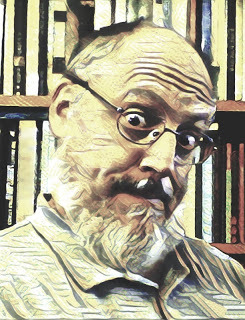 I am a sinful man. Lord have mercy on me. I am a sick man with a mind full of insight but weighed down by affliction.
I am a sinful man. Lord have mercy on me. I am a sick man with a mind full of insight but weighed down by affliction.To bear this long, tedious, unremarkable suffering--not worthy of pity or warranting complaint, dull, not heroic, incomprehensible to myself and everyone else--is probably the most essential task of my life, and will bear more fruit than anything that I aspire to accomplish.
Here are some excerpts from Psalm 38 that I pondered today.
I am bowed and brought to my knees;
every day I go about mourning.
All my frame burns with fever;
all my body is sick.
I am numb and utterly crushed;
I wail with anguish of heart.
My Lord, my deepest yearning is before you;
my groaning is not hidden from you.
My heart shudders, my strength is spent;
the very light of my eyes has failed....
Do not forsake me, O Lord;
my God, be not far from me!
Come quickly to help me,
my Lord and my salvation!
~Psalm 38:7-11, 22-23
Published on June 16, 2017 20:58
June 13, 2017
We Remain Beggars
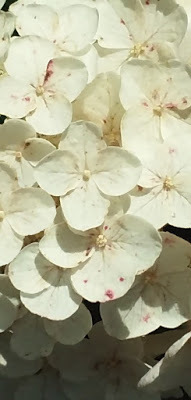 So many sorrows wash over us with the passage of time. Still we endure through all the desperation. We search for meaning, in the expectation that it might be found.
So many sorrows wash over us with the passage of time. Still we endure through all the desperation. We search for meaning, in the expectation that it might be found.We search in times of sorrow and also in times of prosperity and success.
In this life, even our most sublime moments are anticipations. The seeking, the hunger, the desire, and the need of our hearts remain, crying out for the fullness of love.
We remain beggars, but with a promise of fulfillment that grows through what life gives us, deepening in us both the longing and the hope for Love's ultimate embrace.
Published on June 13, 2017 11:57
June 10, 2017
Christina Grimmie Remembered the World Over, One Year Later
Christina Grimmie continues to reach people and inspire them with her great heart, her great music, and her spectacular voice, as well as the legacy of all her videos, her image, her smile, the "Grimmie green," and the love of the Team Grimmie people all over the world who continue to work with her family and close friends to make her remaining recorded music available and better known.
Her posthumously released full length album, All is Vanity, is now available. (Click HERE)
This graphic is my small contribution to a very large memorial marking this first anniversary of the night of June 10, 2016, when violence and love looked at one another, face to face. Violence brought murder and sorrow and grief, but love did not cease to be love!
"Love never ends."
Love is sublime. Love blazes back to life. Love shines on.
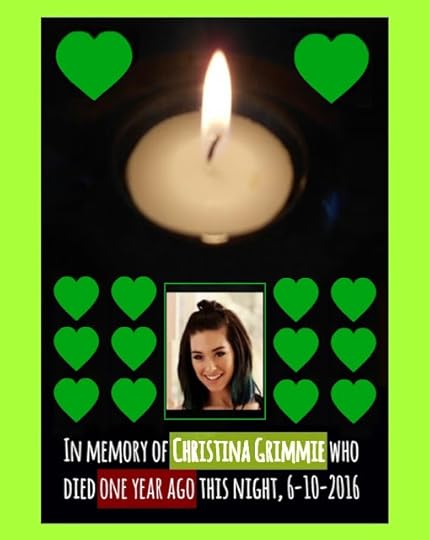
Her posthumously released full length album, All is Vanity, is now available. (Click HERE)
This graphic is my small contribution to a very large memorial marking this first anniversary of the night of June 10, 2016, when violence and love looked at one another, face to face. Violence brought murder and sorrow and grief, but love did not cease to be love!
"Love never ends."
Love is sublime. Love blazes back to life. Love shines on.

Published on June 10, 2017 18:18





